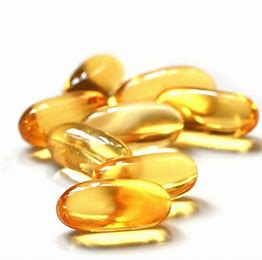Alpha-tocopherol is a fat-soluble vitamin E, in fact, the only type of vitamin E that the human body can utilize. As an antioxidant, the primary function of Vitamin E is to scavenge free electrons, or “free radicals”, which can harm cells. Additionally, it improves immunological performance and stops blood clots from developing in heart arteries.
Vitamin E deficiency is uncommon because vitamin E is present in many foods and supplements. Some people also prefer taking additional vitamin E capsules. Vitamin E shortage can occur in people with digestive issues or conditions that impair fat absorption (like celiac disease). However, it is important to include vitamin E in your daily food intake because of the following benefits that this vitamin provides:
- It may help reduce oxidative stress
When your body’s antioxidant defenses are out of balance with the creation and buildup of substances known as reactive oxygen species (ROS), a condition characterized as oxidative stress, develops. Cellular loss and a higher probability of disease can result from this. Studies have shown that boosting the body with significant amounts of vitamin E can reduce signs of oxidative stress and increase antioxidant defenses in some people because vitamin E functions as a potent antioxidant in the body. Thus, it could be said that vitamin E helps in reducing the signs of aging.
- It may benefit patients with NAFL disease
Including vitamin E regularly in your diet can benefit those who suffer from non-alcoholic fatty liver disease (NAFLD). Individuals who do not have a drinking problem will not develop liver cirrhosis, but a range of NAFLDs may result due to fat buildup in the liver. Results from research suggest that vitamin E supplementation may benefit NAFLD patients’ health in several ways. A 2021 analysis of eight research discovered that supplementation with vitamin E decreased blood lipid levels, enhanced liver health, and decreased levels of the liver enzymes called alanine aminotransferase (ALT) and aspartate aminotransferase (AST).
- It might lower the chance of developing heart disease
Your risk of developing heart disease may increase with elevated triglycerides, low-density lipoprotein (LDL — bad cholesterol), and blood pressure. According to research, some people may benefit from taking vitamin E supplements to help reduce certain heart disease risk factors. A 2019 assessment of 18 research discovered that vitamin E supplements significantly lowered systolic blood pressure, but not diastolic blood pressure, when compared to placebo treatments. Additionally, some research suggests that combining vitamin E capsules and omega-3 capsules or all in one HK vitals multivitamin tablets may lower triglyceride levels in people with metabolic syndrome. This is a group of diseases that includes high blood fat levels, which in turn, creates more risk of developing heart diseases.
- Can help manage “Dysmenorrhea”
Menstrual discomfort, including cramps and pelvic pain, is a common and severe symptom of the condition known as dysmenorrhea. According to research, vitamin E supplements may help these women feel less pain. In a 2018 study, 200 IU of vitamin E taken daily helped in reducing menstruation discomfort more effectively than a placebo in 100 women with dysmenorrhea. The results were even more impressive when the vitamin was coupled with an omega-3 supplement containing 180 mg of EPA (eicosapentaenoic acid) and 120 mg of DHA (docosahexaenoic acid).
Additionally, a 2021 study found that supplementing with a mix of vitamins E and C daily for eight weeks helped endometriosis-affected women have less severe dysmenorrhea and pelvic pain.
- Other health benefits of vitamin E:
- May benefit skin health: Supplemental vitamin E may benefit those with specific skin conditions, such as eczema. To learn more about this possible advantage, further research is required because there is a lack of it at the moment.
- May benefit older adults: Supplements may be helpful for people who have increasing demands or don’t get enough vitamin E in their diets, such as elderly people. Vitamin E is essential for them as it plays a vital role in health, such as lowering inflammation and enhancing immunological function.
What is the recommended daily Vitamin E dosage/intake?
The National Institutes of Health (NIH) recommend the following as a sufficient daily dose of vitamin E intake:
| Age | Recommended intake |
| 0-6 months | 4 mg |
| 7-12 months | 5 mg |
| 1-3 years | 6 mg |
| 4-8 years | 7 mg |
| 9-13 years | 11 mg |
| 14 years and above | 15 mg |
The recommended daily consumption is 15 mg for pregnant women and 19 mg for breastfeeding mothers. However, before beginning any supplement, always speak with your doctor. He or she will examine your underlying health issues and then suggest a dosage for you that may be somewhat higher or lower than the amounts listed in this table. If you’re thinking about increasing your vitamin E intake or other supplements like omega 3 capsules, contact a healthcare provider first about your particular health issues.

